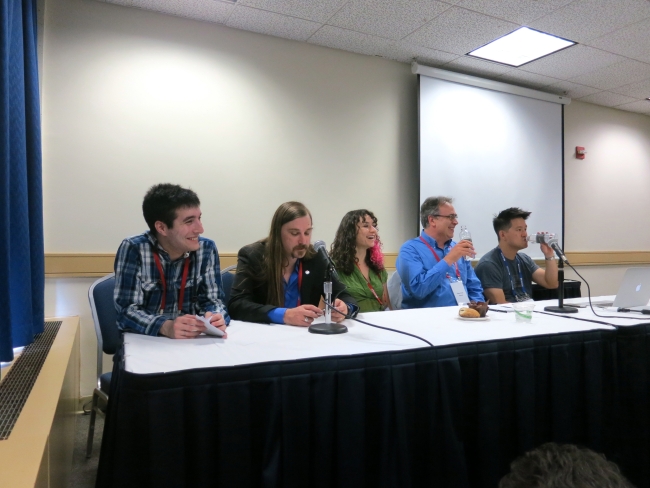You have /5 articles left.
Sign up for a free account or log in.

Wikimedia Commons/Creative Commons
Even as women make up a larger share of the professoriate in just about every discipline, many have noted that their numbers aren't always reflected in the senior ranks, or in visibility that comes with speaking engagements at scholarly meetings. When organizing committees say that they can't find the right women for certain talks, many academics scoff. In some fields, scholars have even talked about whether they should boycott conferences without any female speakers in prominent roles.
A new study suggests that one factor limiting women's participation in major meetings may be all-male selection panels for such meetings. The study found that the inclusion of even one woman on such selection teams has a major impact on who gets asked to speak.
The study -- in the journal mBio -- looked at scientific panels involving nearly 2,000 speakers at three large meetings sponsored by the American Society for Microbiology from 2011 through 2013. The analysis compared the results from 104 all-male "convener teams" and 112 teams that had at least one woman. About 25 percent of the speakers invited by the all-male teams were women. But 43 percent of the speakers (an increase of 72 percent) invited by the teams with at least one woman were female.
Organizing teams with at least one women were also much less likely than all-male organizing teams (9 percent vs. 30 percent) to produce symposiums in which all panel members were men.
In a news release, Arturo Casadevall, co-author of the study and professor and chair of microbiology and immunology at the Albert Einstein College of Medicine of Yeshiva University, said that having female speakers not only encourages women in the audience, but helps those who speak to advance their careers.
"Participating in meetings as a speaker is an extremely important factor for academic advancement," he said. "It's a cascade effect – once you're a speaker, your work is recognized, and you are more likely to make connections, have your work funded, and to be invited to speak again. And when you speak at a meeting, your reputation at your home institution also improves, and that helps your chances of promotion. So being an invited speaker at these meetings can definitely help advance your scientific career."
The American Society for Microbiology has alerted its members of the findings of the study, so that they might consider these issues when putting together speaker selection panels.
The paper's co-author is Jo Handelsman of Yale University, who has done extensive work on issues facing women in science.








